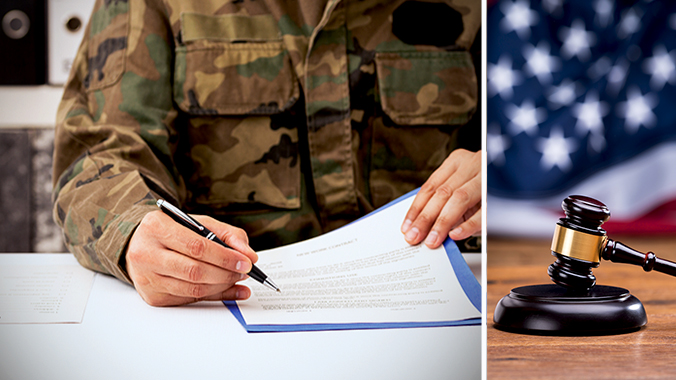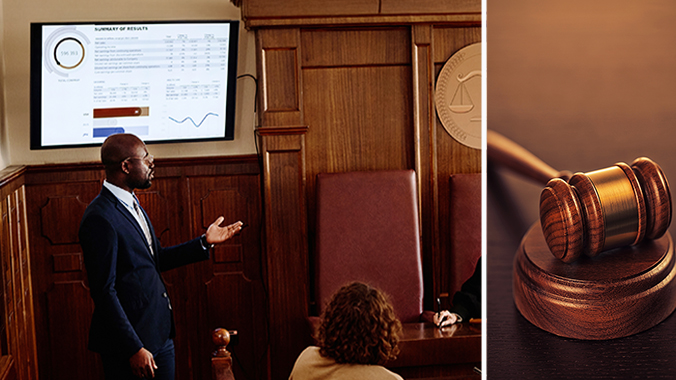The Fly on the Wall: A Decision Writer’s Advice to the Representative (Presented by the National Organization of Social Security Claimants’ Representatives)

Leslie has been an attorney for over 30 years, with a focus on legal services work. Since 1998, her work has focused on Social Security disability cases, with an emphasis on HIV / AIDS disability.
1 hour CLE
Get this course, plus over 1,000+ live webinars.
Learn More
Program Summary
This program will cover advice that the agency decision writers wish representatives knew! The program will provide insider tips on the training that decision writers receive and key points to highlight for them in your claimant's file. It will include tips on how to best elicit testimony from your claimant (without substituting your own voice), and how to best prep- the claimant for the hearing. The program will also emphasize the importance of citing to clear evidence while effectively arguing what weight that evidence should receive.
Key topics to be discussed:
- Have you ever received a call from the decision writer?
- PRW: Recency (last 5 years from AOD); earnings (how much); and duration (how long did the job last and how long does it typically take to learn that job)
- SSR 16-3p: This is the RFC and how the symptoms are supposed to be evaluated
- Supportability: How well did you explain yourself
- Consistency: Look at the other evidence in the record
- Persuasive: This is only relevant regarding opinion evidence
- Weirdness
This course is co-sponsored with myLawCLE.
![]() Closed-captioning available
Closed-captioning available
Speakers
 Leslie F. Kline Capelle | And Benefits for All
Leslie F. Kline Capelle | And Benefits for All
Leslie has been an attorney for over 30 years, with a focus on legal services work. Since 1998, her work has focused on Social Security disability cases, with an emphasis on HIV / AIDS disability. Her career has included 16 years as a Senior Attorney Advisor for the West Los Angeles OHO. Currently she is in private practice with And Benefits for All, a firm based in New York.
Agenda
I. Have you ever received a call from the decision writer? | 1:30pm – 1:40pm
- Please return these calls!
- This can be an ALJ request for evidence, or an offer for a fully favorable decision
- Such calls can be very helpful in getting an award of benefits – you have a chance to have a discussion with the person who probably, second to you, knows the most about your client’s case
II. PRW: Recency (last 5 years from AOD); earnings (how much); and duration (how long did the job last and how long does it typically take to learn that job) | 1:40pm – 1:45pm
III. SSR 16-3p: This is the RFC and how the symptoms are supposed to be evaluated | 1:45pm – 1:50pm
IV. Supportability: How well did you explain yourself | 1:50pm – 2:00pm
- Please stop testifying for the claimant
- Please stop waiting until the day of the hearing to catch up with the claimant, the ALJ definitely notices when the rep gets surprised by new evidence
- Notwithstanding the client who fails to follow up with the rep
- Notwithstanding the client who fails to advise the rep of all relevant facts
- PLEASE fill out the ADL questionnaires. These are very helpful for the writer, especially with regard to the mental health impairments and establishing the “b” criteria
- Only about 10% of claimants actually meet or equal a listing. When the rep “pounds” on a listing argument, it does not improve the case, it weakens the ALJ impression of the rep’s capacity
- If you do have a listing-level claimant, prepare a pre-hearing memo and submit it, listing the exhibits in evidence which support the listing elements. It seems like an easy piece of advice, but it’s immensely helpful to the ALJ and to the writer
V. Consistency: Look at the other evidence in the record | 2:00pm – 2:10pm
- Don’t just point to evidence in support of your argument, argue why the other evidence should receive minimal consideration
VI. Persuasive: This is only relevant regarding opinion evidence | 2:10pm – 2:20pm
- If there are no CE’s in evidence, there still is the opinion evidence from DDS, that still requires a persuasiveness argument
- Is it a single visit exam?
- This can help: If the opinion indicates an RFC which results in non disability, then argue a lack of treatment history to support the RFC
- This can hurt: If the opinion indicates an RFC which would result in disability, and there are no other supporting opinions, then why does the ALJ have to follow it?
- Is it from a treating source?
- Are there treatment records in evidence from the same source?
- Do those treatment records support the limitations indicated in the opinion document?
VII. Weirdness | 2:20pm – 2:30pm
- Claimants don’t “suffer”
- Believe it or not, writers are expressly trained not to use the word “suffer” with regard to a claimant’s impairments!
Preview
More CLE Webinars
Trending CLE Webinars








Upcoming CLE Webinars































































